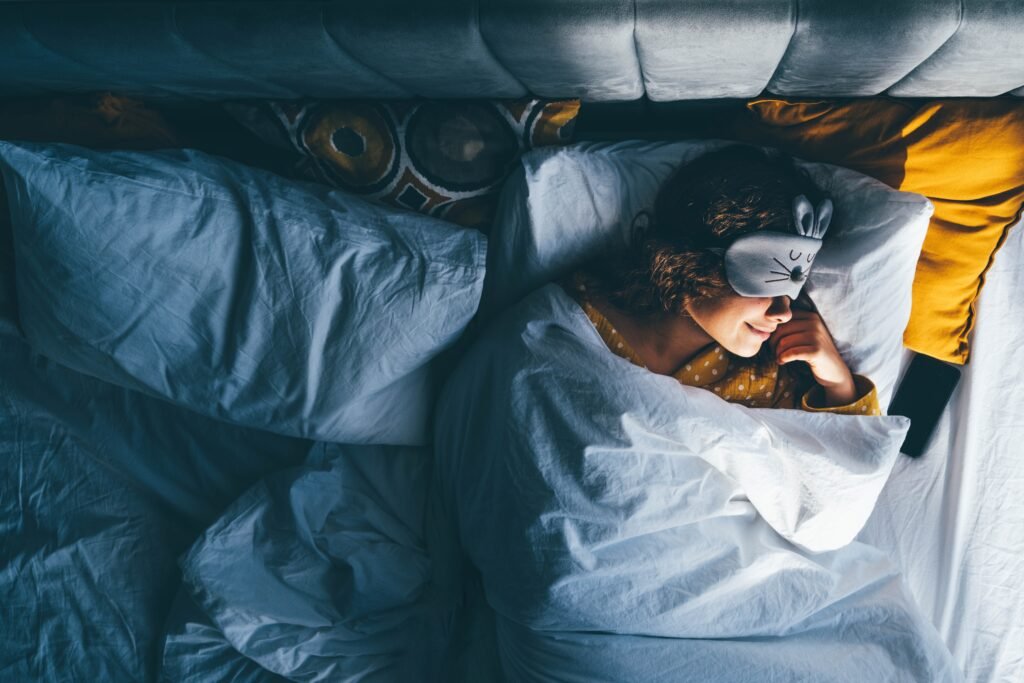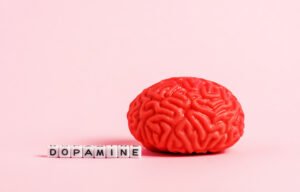Getting enough sleep is essential for maintaining good health and overall well-being. Unfortunately, many people struggle to get a good night’s rest due to a variety of factors such as stress, poor sleep habits, or underlying sleep disorders. Fortunately, there are many strategies that people can use to “hack” their sleep and improve the quality and quantity of their rest.
One of the first steps to hacking your sleep is to understand your sleep patterns. Sleep is a complex process that involves several stages, including non-REM and REM sleep. Each stage plays an important role in restoring and rejuvenating the body and mind. By understanding your sleep patterns, you can identify any issues that may be interfering with your sleep and develop strategies to address them.
Another key aspect of hacking your sleep is understanding the science behind sleep. Sleep is regulated by several different hormones and neurotransmitters, including melatonin, cortisol, and serotonin. By understanding how these chemicals work in the body, you can develop strategies to promote healthy sleep habits and improve the quality of your rest.
Key Takeaways
- Understanding your sleep patterns is essential for improving the quality and quantity of your rest.
- The science behind sleep can help you develop effective strategies for promoting healthy sleep habits.
- By implementing sleep hygiene practices, such as maintaining a consistent sleep schedule and creating a relaxing sleep environment, you can improve your sleep quality and overall well-being.
Understanding Sleep Patterns
Sleep is an essential part of our daily lives, and it plays a crucial role in our overall health and well-being. Understanding sleep patterns is important to ensure that we get enough restful sleep to function properly during the day.
The typical sleep pattern for most adults is a stretch of seven to eight hours of sleep at night, followed by a long, usually unbroken stretch of wakefulness of about 16 hours, before dropping back into sleep again. However, some people may have different sleep patterns, such as a series of naps throughout the day and night.
The sleep pattern is influenced by the sleep rhythm, which is a powerful force that regulates our sleep-wake cycle. The sleep rhythm is controlled by an internal biological clock, which is located in the hypothalamus of the brain. This clock regulates the release of hormones such as melatonin, which helps us fall asleep, and cortisol, which helps us wake up.
The sleep rhythm is also influenced by external factors such as light exposure, social cues, and work schedules. Exposure to bright light in the morning can help reset the sleep rhythm, while exposure to bright light in the evening can delay the sleep onset. Social cues such as meal times and social activities can also influence the sleep rhythm. Work schedules such as shift work or night work can disrupt the sleep rhythm, leading to sleep problems.
Understanding sleep patterns can help individuals optimize their sleep and improve their overall health and well-being. By following healthy sleep habits such as maintaining a regular sleep schedule, avoiding caffeine and alcohol before bedtime, and creating a comfortable sleep environment, individuals can improve the quality of their sleep and wake up feeling refreshed and alert.
The Science Behind Sleep
Sleep is a natural process that is essential for the maintenance of physical and mental health. The amount and quality of sleep that a person gets can have a significant impact on their overall well-being.
During sleep, the body goes through several stages, including light sleep, deep sleep, and rapid eye movement (REM) sleep. Each of these stages serves a different purpose in the body’s physical and mental restoration. For example, deep sleep is important for physical restoration, while REM sleep is essential for cognitive restoration.
The circadian rhythm, or the body’s internal clock, plays a significant role in regulating sleep patterns. The circadian rhythm is influenced by external factors such as light exposure, temperature, and social cues. Disruptions to the circadian rhythm can lead to sleep disturbances and other health issues.
Research has shown that sleep patterns can be influenced by genetics, age, and lifestyle factors such as diet, exercise, and stress. Some studies suggest that our ancestors’ sleep patterns may have included a stint of sleep lasting three to five hours, followed by a period of time awake, engaging in some light activity before returning to sleep.
Overall, the science behind sleep is complex and multifaceted. Understanding the various factors that influence sleep patterns can help individuals make informed decisions about their sleep habits and improve their overall well-being.
The Importance of Sleep Hygiene
Sleep hygiene refers to both the sleep environment and behavior that can impact the quality and quantity of sleep. Good sleep hygiene practices can help individuals fall asleep faster, stay asleep longer, and wake up feeling refreshed.
Creating a Sleep-Inducing Environment
The sleep environment plays an important role in the quality of sleep. It is important to create a sleep-inducing environment that promotes relaxation and reduces distractions. Here are some tips to create an ideal sleep environment:
- Keep the bedroom cool, dark, and quiet to promote relaxation and reduce distractions.
- Invest in a comfortable mattress and pillows to support the body and reduce discomfort.
- Use comfortable bedding made of breathable materials to regulate body temperature and promote comfort.
- Remove any electronics, such as televisions or computers, that can cause distractions and interfere with sleep.
- Use blackout curtains or eye masks to reduce exposure to light, which can interfere with the body’s natural sleep-wake cycle.
Establishing a Consistent Sleep Schedule
Establishing a consistent sleep schedule helps the body’s internal clock regulate sleep-wake cycles. It is important to go to bed and wake up at the same time every day, even on weekends, to maintain a consistent sleep schedule. Here are some tips to establish a consistent sleep schedule:
- Set a regular bedtime and wake-up time and stick to it every day.
- Avoid napping during the day, as it can interfere with nighttime sleep.
- Avoid caffeine, nicotine, and alcohol before bedtime, as they can interfere with sleep.
- Exercise regularly, but avoid vigorous exercise close to bedtime.
- Establish a relaxing bedtime routine, such as taking a warm bath or reading a book, to signal to the body that it is time to sleep.
By following good sleep hygiene practices, individuals can improve the quality of their sleep and wake up feeling more refreshed and alert.
Diet and Sleep
Getting a good night’s sleep can be influenced by diet. Certain foods can promote sleep while others can disrupt it. Here are some tips on how to hack your sleep with diet.
Foods that Promote Sleep
Certain foods contain nutrients that can promote sleep. For example, foods that are high in tryptophan, an amino acid that is a precursor to serotonin and melatonin, can help induce sleep. Foods that are high in magnesium, such as almonds and spinach, can also promote sleep.
Here are some examples of foods that can promote sleep:
| Food | Nutrient |
|---|---|
| Turkey | Tryptophan |
| Almonds | Magnesium |
| Chamomile Tea | Apigenin |
| Kiwi | Serotonin |
Avoiding Sleep-Disrupting Foods
Just as certain foods can promote sleep, there are also foods that can disrupt it. Consuming caffeine, alcohol, and spicy or heavy meals before bedtime can interfere with sleep. Eating sugary foods before bed can also cause a spike in blood sugar levels, leading to a disrupted sleep.
Here are some examples of foods that can disrupt sleep:
- Caffeine
- Alcohol
- Spicy or heavy meals
- Sugary foods
By making small changes to their diet, people can improve their sleep quality. Eating foods that promote sleep and avoiding foods that disrupt it can help people get a better night’s rest.
Exercise and Sleep
Regular exercise can have a positive impact on sleep quality. According to the Sleep Foundation, studies have found that proper exercise can alleviate sleep-related problems and help individuals get an adequate amount of rest. Exercise can also reduce stress and anxiety, which can interfere with sleep.
However, it is important to note that the timing of exercise can affect sleep quality. It is generally recommended to exercise earlier in the day, as exercising too close to bedtime can make it difficult to fall asleep. This is because exercise can increase body temperature and stimulate the body, making it harder to wind down and relax.
In addition to timing, the type of exercise can also impact sleep. Aerobic exercise, such as running or cycling, has been shown to improve sleep quality and duration. Resistance training, such as weightlifting, can also have a positive effect on sleep, but it is important to avoid exercising specific muscle groups too close to bedtime, as this can cause discomfort and make it difficult to fall asleep.
Overall, incorporating regular exercise into a daily routine can have numerous benefits for sleep quality and overall health. It is important to find a type and timing of exercise that works best for each individual’s needs and preferences.
Stress Management for Better Sleep
Stress and anxiety are common reasons why people struggle to fall and stay asleep. Incorporating stress management techniques into a daily routine can help improve sleep quality. Here are some effective stress management techniques:
Relaxation Techniques
Relaxation techniques such as deep breathing, progressive muscle relaxation, and visualization can help reduce stress and promote relaxation. Deep breathing involves taking slow, deep breaths, holding them for a few seconds, and then exhaling slowly. Progressive muscle relaxation involves tensing and relaxing different muscle groups in the body to release tension. Visualization involves imagining a peaceful scene or place to promote relaxation.
Mindfulness and Sleep
Mindfulness practices such as meditation and yoga can help reduce stress and anxiety, leading to better sleep. Meditation involves focusing on the present moment and letting go of distracting thoughts. Yoga combines physical postures with breathing techniques and meditation to promote relaxation and reduce stress.
Incorporating stress management techniques into a daily routine can help improve sleep quality. It is important to find a technique that works best for each individual and to practice it regularly. With regular practice, stress management techniques can become a habit, leading to better sleep and overall well-being.
Sleep Aids and Tools
Getting a good night’s sleep is essential for overall health and wellbeing. However, many people struggle with falling asleep or staying asleep throughout the night. Fortunately, there are several sleep aids and tools available that can help improve the quality of your sleep.
Sleep-Enhancing Gadgets
There are various gadgets available that can help enhance sleep quality. Some of the popular ones are:
- White noise machines: These machines produce a constant, soothing sound that can help block out other noises and promote relaxation.
- Smart sleep trackers: These devices track sleep patterns and provide insights into how to improve sleep quality.
- Light therapy lamps: These lamps simulate natural sunlight and can help regulate the body’s circadian rhythm, promoting better sleep.
- Sleep headphones: These headphones are designed to be comfortable to wear while sleeping and provide soothing sounds or music to help promote relaxation.
While these gadgets can be helpful, it’s important to remember that they are not a substitute for healthy sleep habits.
Natural Sleep Supplements
There are also natural sleep supplements available that can help promote relaxation and improve sleep quality. Some of the popular ones are:
- Melatonin: This hormone helps regulate the sleep-wake cycle and is naturally produced by the body. Taking a melatonin supplement can help promote relaxation and improve sleep quality.
- Valerian root: This herb has been used for centuries as a natural sleep aid. It can help promote relaxation and improve sleep quality.
- Chamomile tea: Drinking chamomile tea before bed can help promote relaxation and improve sleep quality.
It’s important to talk to a healthcare provider before taking any supplements, as they may interact with other medications or have side effects.
Overall, sleep aids and tools can be helpful in improving sleep quality. However, it’s important to also prioritize healthy sleep habits, such as maintaining a consistent sleep schedule, creating a relaxing sleep environment, and avoiding caffeine and alcohol before bed.
Professional Help for Sleep Issues
If you are experiencing chronic sleep problems, it may be time to seek professional help. While there are many self-help strategies and lifestyle changes that can improve sleep quality, sometimes these are not enough to address the root cause of sleep problems. In such cases, it may be necessary to seek the help of a healthcare professional who specializes in sleep disorders.
Types of Professionals Who Can Help
There are several types of healthcare professionals who can help with sleep issues. These include:
- Sleep specialists: These are doctors who specialize in sleep medicine and can diagnose and treat a wide range of sleep disorders.
- Psychologists: They can provide behavioral therapies, such as Cognitive Behavioral Therapy for Insomnia (CBT-I), which can be highly effective in treating insomnia.
- Psychiatrists: They can diagnose and treat sleep disorders that may be related to mental health conditions, such as anxiety or depression.
- Primary care physicians: They can provide initial evaluation and treatment of sleep disorders, and may refer patients to specialists if necessary.
What to Expect During a Sleep Consultation
During a sleep consultation, the healthcare professional will likely ask about your sleep habits and any symptoms you may be experiencing. They may also ask you to keep a sleep diary to track your sleep patterns. Depending on your symptoms, they may recommend further testing, such as a sleep study, to diagnose any underlying sleep disorders.
Once a diagnosis has been made, the healthcare professional will work with you to develop a treatment plan. This may include medication, behavioral therapies, or a combination of both. They may also recommend lifestyle changes, such as improving sleep hygiene or making changes to your sleep environment.
Conclusion
If you are experiencing chronic sleep problems, seeking professional help can be a crucial step in improving your sleep quality and overall health. By working with a healthcare professional who specializes in sleep disorders, you can receive an accurate diagnosis and effective treatment plan that meets your individual needs.
Frequently Asked Questions
How can I improve my sleep quality without sleeping more?
Improving sleep quality doesn’t necessarily mean sleeping more. Simple changes to your sleep environment and bedtime routine can make a big difference. Some tips include:
- Keep your bedroom cool, dark, and quiet.
- Use comfortable bedding and pillows.
- Stick to a consistent sleep schedule.
- Avoid caffeine, alcohol, and large meals before bedtime.
- Wind down with relaxing activities, such as reading or taking a warm bath.
What are some unusual sleep hacks that actually work?
Some unusual sleep hacks that have been shown to work include:
- Sleeping with socks on to improve circulation.
- Using a weighted blanket to reduce anxiety and promote relaxation.
- Listening to white noise or nature sounds to block out distractions.
- Sleeping in a hammock to reduce pressure points and improve blood flow.
What is the 15 minute sleep trick and does it work?
The 15 minute sleep trick involves lying in bed with your eyes closed for 15 minutes, even if you’re not asleep. If you’re still awake after 15 minutes, get up and do something relaxing before trying again. This technique can help reduce anxiety and improve sleep quality.
How can I bulletproof my sleep and wake up feeling rested?
To bulletproof your sleep and wake up feeling rested, try the following:
- Stick to a consistent sleep schedule, even on weekends.
- Avoid caffeine, alcohol, and nicotine before bedtime.
- Create a relaxing bedtime routine.
- Keep your bedroom cool, dark, and quiet.
- Use comfortable bedding and pillows.
- Exercise regularly, but not too close to bedtime.
- Manage stress with relaxation techniques, such as deep breathing or meditation.
What are some effective sleep deprivation hacks?
While it’s important to prioritize getting enough sleep, sometimes life gets in the way. Here are some effective sleep deprivation hacks to help you function better:
- Take a power nap for 20-30 minutes.
- Drink caffeine strategically, such as right before taking a nap.
- Get some exercise to boost energy levels.
- Take a cold shower to increase alertness.
- Practice good sleep hygiene as soon as you can.
What is the TikTok sleep hack and how does it work?
The TikTok sleep hack involves placing a pillow under your knees while sleeping on your back. This can help alleviate lower back pain and improve spinal alignment. While there isn’t scientific evidence to support this specific hack, it’s worth trying if you experience lower back pain.









